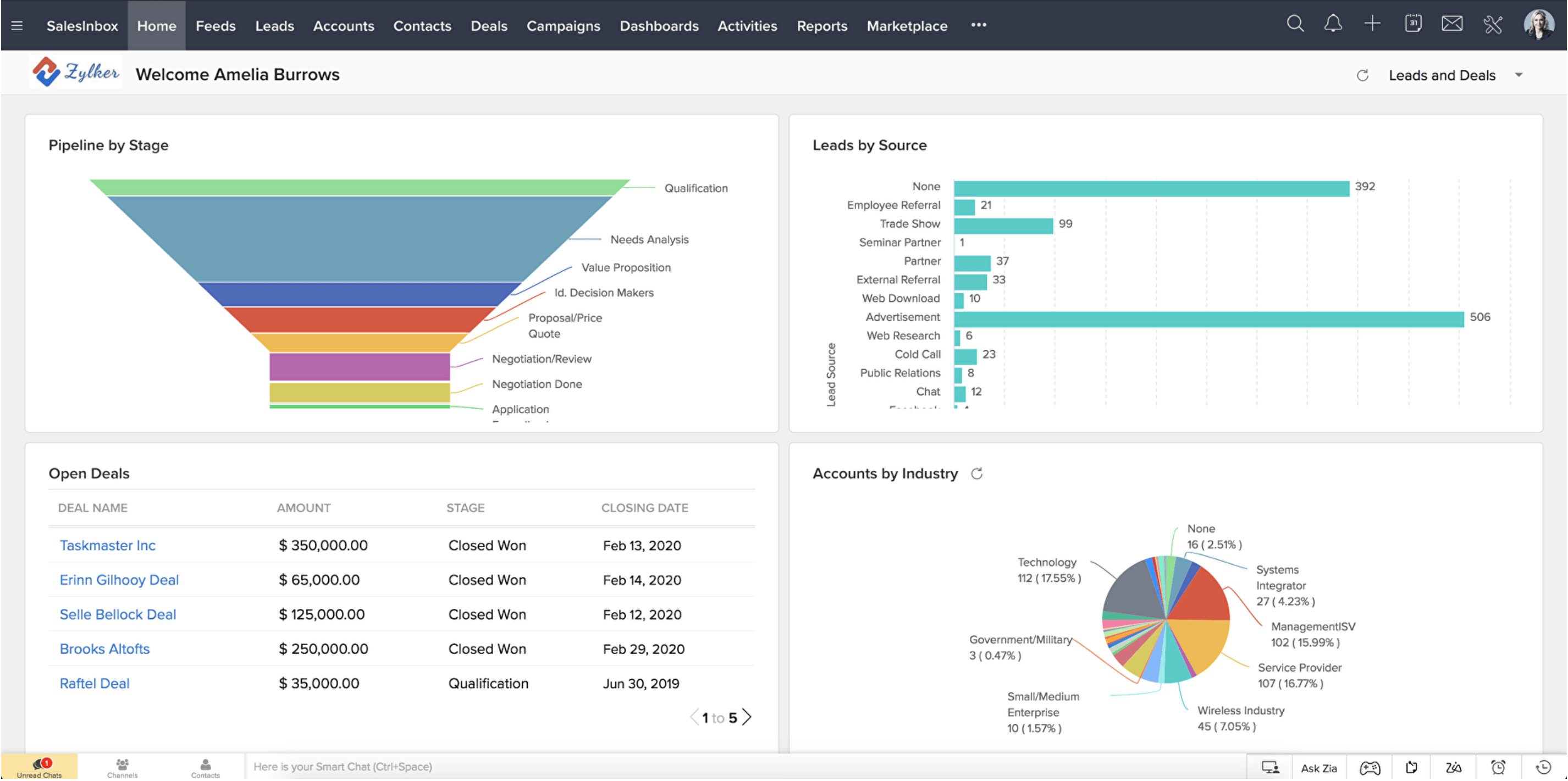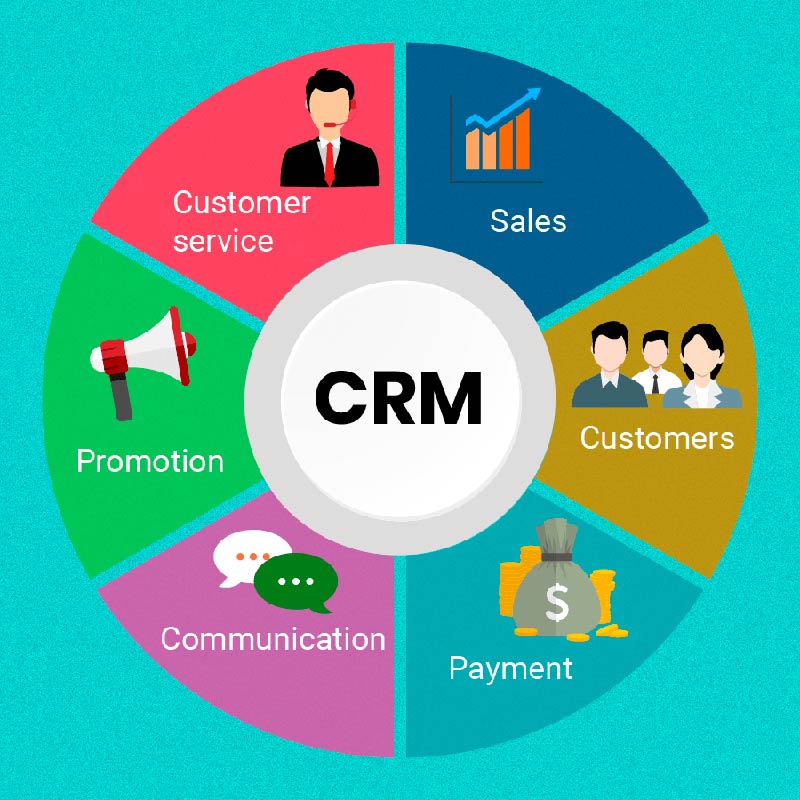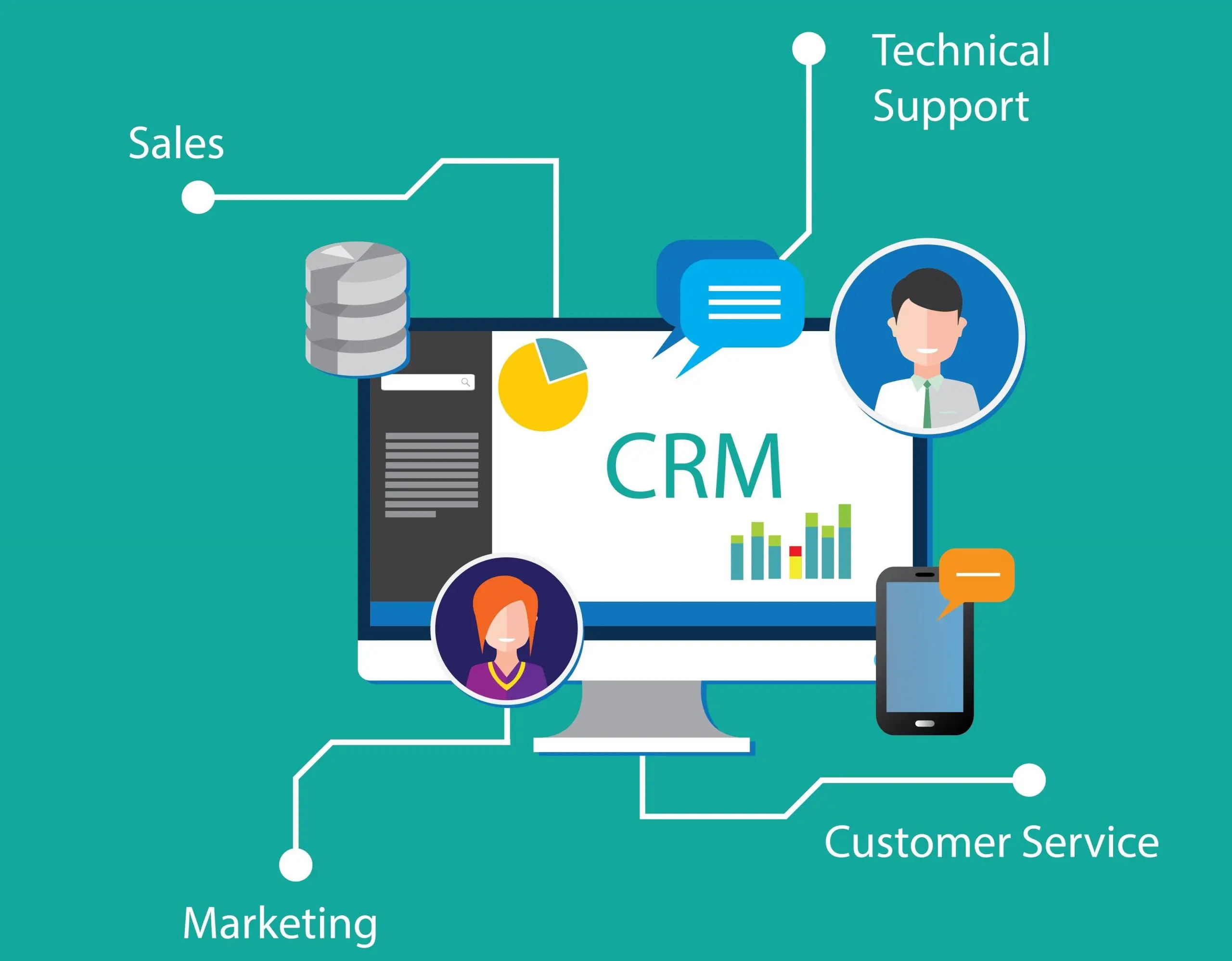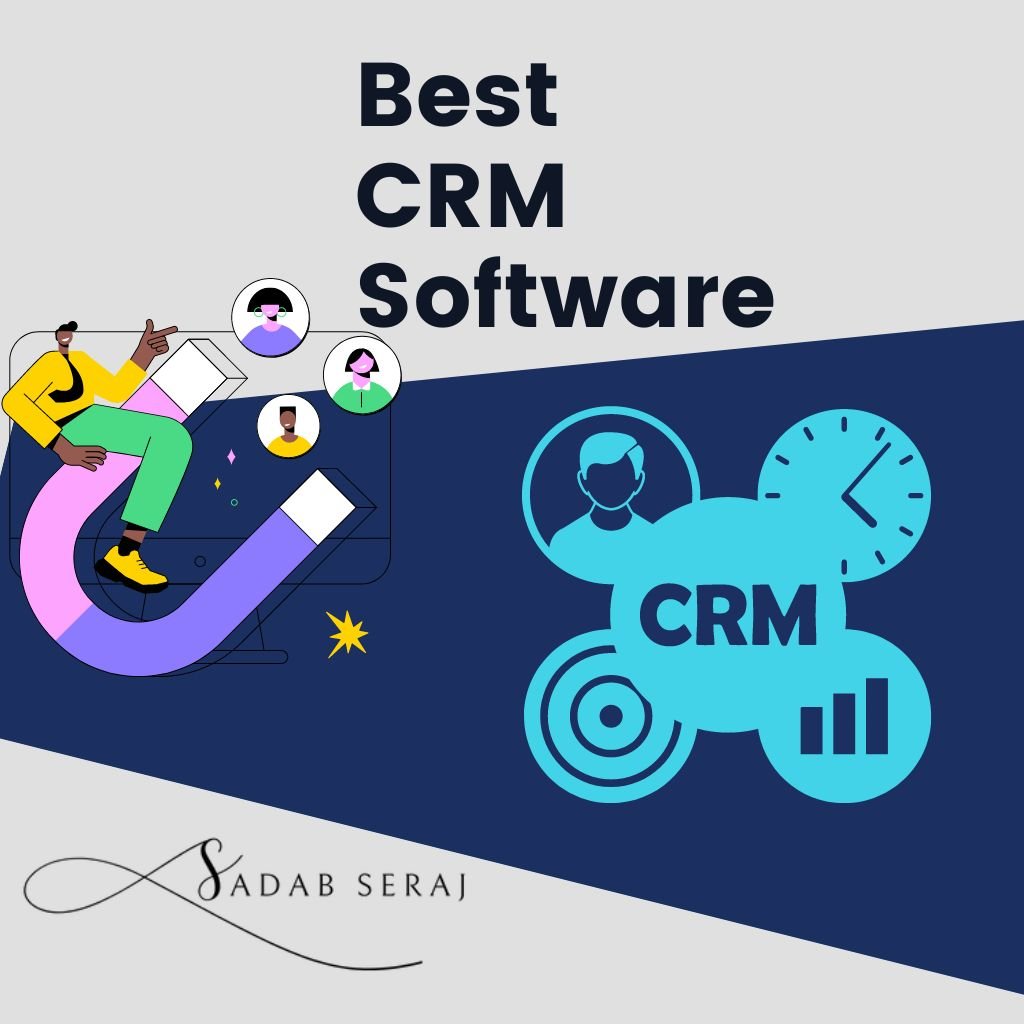CRM software buy has emerged as a game-changer in the business landscape, empowering organizations to nurture customer relationships, streamline operations, and drive growth. This comprehensive guide delves into the world of CRM software, exploring its key features, benefits, types, selection criteria, implementation strategies, integrations, pricing models, and emerging trends.
With the increasing complexity of customer interactions, CRM software has become an indispensable tool for businesses of all sizes. By providing a centralized platform for managing customer data, automating processes, and facilitating collaboration, CRM software empowers businesses to deliver exceptional customer experiences, drive sales, and gain a competitive edge.
Features and Capabilities
CRM software provides a comprehensive suite of features and capabilities that are designed to enhance customer relationships and streamline business operations. These features include:
• Contact management: CRM software allows businesses to centralize and manage all customer data, including contact information, demographics, and communication history.
Lead management
- Lead capture: CRM software can capture leads from various sources, such as websites, forms, and social media.
- Lead qualification: CRM software helps businesses qualify leads by scoring them based on specific criteria, such as industry, job title, and company size.
- Lead nurturing: CRM software provides tools for nurturing leads through automated email campaigns and personalized content.
Sales management
- Opportunity tracking: CRM software allows businesses to track sales opportunities throughout the sales pipeline.
- Quote and proposal generation: CRM software can generate quotes and proposals for customers.
- Order management: CRM software helps businesses manage customer orders and track their progress.
Customer service
- Case management: CRM software provides a centralized platform for managing customer support cases.
- Knowledge base: CRM software can provide a knowledge base of frequently asked questions and solutions.
- Live chat: CRM software can integrate with live chat software to provide real-time customer support.
Marketing automation
- Email marketing: CRM software can automate email marketing campaigns.
- Social media marketing: CRM software can integrate with social media platforms to automate social media marketing activities.
- Marketing analytics: CRM software provides analytics to track the performance of marketing campaigns.
Reporting and analytics
- Sales reports: CRM software can generate sales reports to provide insights into sales performance.
- Marketing reports: CRM software can generate marketing reports to provide insights into marketing campaign performance.
- Customer service reports: CRM software can generate customer service reports to provide insights into customer satisfaction.
Benefits of CRM Software

CRM software offers numerous benefits to businesses by streamlining processes and improving customer interactions. It provides valuable insights into customer behavior, preferences, and engagement history, enabling businesses to make informed decisions and enhance their overall performance.
CRM software can significantly improve sales, marketing, and customer service operations by:
Improved Sales Performance
- Centralized customer data provides a comprehensive view of customer interactions, enabling sales teams to tailor their approach and close deals more effectively.
- Automated sales processes streamline workflows, saving time and improving productivity.
- Sales forecasting and analytics tools help businesses predict future sales and optimize their strategies.
Enhanced Marketing Campaigns, Crm software buy
- Segmented customer data allows marketers to target specific audiences with personalized campaigns.
- Automated marketing tools streamline email campaigns, social media marketing, and other marketing activities.
- CRM software provides insights into campaign performance, enabling marketers to measure ROI and optimize their efforts.
Exceptional Customer Service
- A centralized customer support system ensures that all customer interactions are tracked and managed efficiently.
- Self-service portals empower customers to resolve issues independently, reducing support costs.
- CRM software provides a complete history of customer interactions, enabling support teams to provide personalized assistance.
Case Study: Acme Corporation
Acme Corporation, a leading technology company, implemented a CRM solution to improve its customer engagement and sales performance. By centralizing customer data and automating sales processes, Acme increased its sales conversion rate by 15% and reduced its sales cycle time by 20%.
Types of CRM Software
CRM software comes in various types, each with its own advantages and disadvantages. Understanding the different types can help you choose the best solution for your business needs.
The primary types of CRM software include on-premise, cloud-based, and SaaS (Software as a Service).
On-Premise CRM
- Installed and hosted on your own servers
- Requires significant IT resources and maintenance
- Provides greater control and customization options
Cloud-Based CRM
- Hosted by a third-party provider over the internet
- Requires minimal IT resources and maintenance
- Offers flexibility, scalability, and accessibility
SaaS CRM
- A cloud-based CRM solution that is accessed through a web browser or mobile app
- Typically offered on a subscription basis
- Provides ease of use, affordability, and automatic updates
Pros and Cons
| Type | Pros | Cons |
|---|---|---|
| On-Premise | Greater control, customization, security | High cost, complex maintenance, limited accessibility |
| Cloud-Based | Flexibility, scalability, lower cost | Less control, security concerns, potential downtime |
| SaaS | Ease of use, affordability, automatic updates | Limited customization, potential data security risks |
CRM Software Selection Criteria

Selecting the right CRM software for your business is crucial for maximizing its benefits. Here are some factors to consider:
Business Size:Small businesses may need basic CRM features, while large enterprises require more comprehensive solutions.
Industry:CRM software should align with your industry’s specific requirements, such as lead generation, customer support, or project management.
Budget:Determine a realistic budget for CRM software, considering both initial costs and ongoing maintenance fees.
CRM Software Vendor Evaluation Checklist
To evaluate CRM software vendors, consider the following criteria:
- Features and Capabilities:Ensure the software meets your business needs and provides the desired functionality.
- Ease of Use:Choose software that is user-friendly and intuitive, reducing training time and increasing adoption.
- Integration:Assess how well the CRM software integrates with your existing systems, such as ERP, email, and marketing automation.
- Customer Support:Evaluate the vendor’s level of support, including response times, availability, and knowledge base.
- Reputation:Research industry reviews and testimonials to gauge the vendor’s reliability and customer satisfaction.
CRM Software Implementation
CRM software implementation is a complex process that requires careful planning and execution. The following steps are typically involved:
- Planning:This involves defining the project scope, identifying stakeholders, and developing a project plan.
- Data migration:This involves transferring data from the old system to the new CRM system. It is important to ensure that the data is accurate and complete.
- User training:This involves training users on how to use the new CRM system. It is important to provide adequate training to ensure that users are able to use the system effectively.
- Change management:This involves managing the change process and ensuring that users are able to adopt the new CRM system. It is important to communicate with users throughout the change process and provide support to help them through the transition.
Best Practices for CRM Software Implementation
There are a number of best practices that can help to ensure a successful CRM software implementation. These include:
- Get buy-in from stakeholders:It is important to get buy-in from all stakeholders involved in the implementation process. This will help to ensure that everyone is on the same page and that the project is supported.
- Use a phased approach:Implementing CRM software can be a complex process. It is often helpful to use a phased approach to break the project down into smaller, more manageable pieces.
- Test the system thoroughly:It is important to test the CRM system thoroughly before going live. This will help to identify any potential problems and ensure that the system is working as expected.
- Provide ongoing support:It is important to provide ongoing support to users after the CRM system has been implemented. This will help to ensure that users are able to use the system effectively and that they are able to get the most out of it.
CRM Software Integrations

Integrating CRM software with other business systems is crucial for optimizing data management and streamlining operations. By connecting CRM with external applications, businesses can enhance data accuracy, eliminate manual data entry, and automate processes.
For instance, integrating CRM with email marketing systems allows for automated email campaigns based on customer data, while integration with accounting systems enables seamless invoice generation and payment tracking.
Common CRM Integrations
- Email Marketing:Automating email campaigns based on customer data, segmenting contacts, and tracking campaign performance.
- Accounting Systems:Generating invoices, tracking payments, and reconciling financial data with customer information.
- Project Management Tools:Linking customer data to project tasks, tracking project progress, and managing client communication.
- E-commerce Platforms:Synchronizing customer data between CRM and online stores, tracking order history, and providing personalized shopping experiences.
- Help Desk Systems:Creating support tickets from customer inquiries, tracking issue resolution, and providing customer service analytics.
CRM Software Trends and Innovations
The CRM software industry is constantly evolving, with new trends and innovations emerging all the time. These trends are shaping the future of customer relationship management (CRM), and businesses need to be aware of them in order to stay ahead of the curve.
One of the most important trends in CRM is the rise of artificial intelligence (AI). AI-powered CRM systems can automate many tasks, such as lead scoring, customer segmentation, and predictive analytics. This can free up sales and marketing teams to focus on more strategic initiatives.
Another major trend is the adoption of cloud-based CRM systems. Cloud-based CRM systems are more affordable and easier to use than on-premise CRM systems. They also offer greater flexibility and scalability.
Finally, there is a growing trend towards the integration of CRM systems with other business applications. This integration can help businesses to get a complete view of their customers and to improve their overall customer experience.
CRM Software Trends and Innovations
- The rise of artificial intelligence (AI)
- The adoption of cloud-based CRM systems
- The integration of CRM systems with other business applications
These are just a few of the trends that are shaping the future of CRM software. Businesses need to be aware of these trends in order to stay ahead of the curve and to get the most out of their CRM investments.
CRM Software Pricing and Cost Considerations

Understanding the pricing models and factors that influence the cost of CRM software is crucial for businesses. This knowledge empowers organizations to optimize their CRM investments and make informed decisions.
Pricing Models
- Per-user pricing:Charges a fixed fee for each user who accesses the CRM system.
- Tiered pricing:Offers different pricing plans with varying features and user limits.
- Usage-based pricing:Charges based on the number of transactions, storage used, or API calls made.
- Subscription pricing:Requires a monthly or annual subscription fee for access to the CRM software.
Factors Influencing Cost
- Number of users:The more users accessing the CRM, the higher the cost.
- Features and functionality:Advanced features, such as marketing automation or predictive analytics, increase the cost.
- Deployment method:Cloud-based CRM is typically more affordable than on-premise solutions.
- Vendor reputation and market share:Leading vendors with a large market share often charge higher prices.
- Customization and integration:Customizations and integrations with other systems can add to the cost.
Tips for Optimizing Costs
- Negotiate with vendors:Engage in negotiations to secure discounts or favorable terms.
- Choose the right pricing model:Select a pricing model that aligns with your usage patterns and budget.
- Consider open-source CRM:Open-source CRM solutions can be cost-effective alternatives.
- Implement phased deployment:Start with a basic CRM implementation and gradually add features as needed.
- Monitor usage and adjust accordingly:Track CRM usage and adjust your subscription or pricing plan to optimize costs.
Epilogue

In conclusion, CRM software buy has revolutionized the way businesses manage customer relationships and streamline operations. By embracing the power of CRM software, organizations can gain a deeper understanding of their customers, personalize interactions, improve decision-making, and ultimately drive business success.
As technology continues to evolve, CRM software will undoubtedly remain at the forefront of customer relationship management, enabling businesses to stay ahead of the curve and thrive in the ever-changing business environment.
FAQ Corner: Crm Software Buy
What are the key features of CRM software?
CRM software typically includes features such as contact management, lead tracking, sales pipeline management, marketing automation, customer service management, reporting, and analytics.
What are the benefits of implementing CRM software?
CRM software can help businesses improve sales performance, enhance marketing campaigns, provide better customer service, increase operational efficiency, and gain valuable insights into customer behavior.
What are the different types of CRM software available?
CRM software comes in various types, including on-premise, cloud-based, and SaaS solutions. Each type has its own advantages and disadvantages, depending on the specific needs and resources of the business.
How do I choose the right CRM software for my business?
When selecting CRM software, businesses should consider factors such as the size of their organization, industry, budget, and specific business requirements. It is important to evaluate different vendors and compare their features, pricing, and customer support.
What are the best practices for implementing CRM software?
Successful CRM software implementation involves careful planning, data migration, user training, and change management. It is important to ensure that the software is properly configured, integrated with other business systems, and adopted by users throughout the organization.
